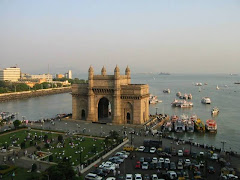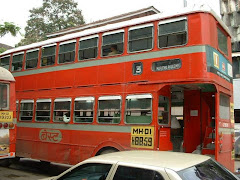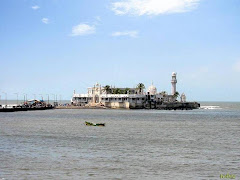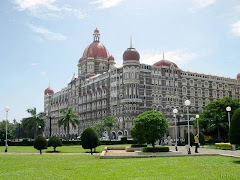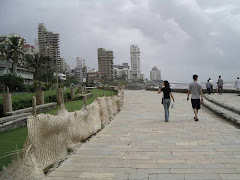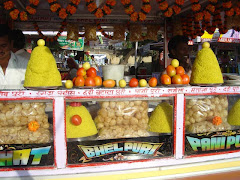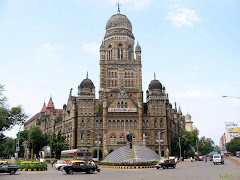Monday, February 11, 2013
Kolaveri Senoritas
"What is this Kolaveri Di", is the refrain that is being heard all around the world through initiatives of resident Indian flash mobs.
Kolaveri Di is a Tamil nonsense song translated as "Hey Girl Cool Your Rage" composed for a Tamil Film that describes an angry girl who is dumped by her boy friend. The composer uses Tamil slang with English and Hindi words accompanied by various India classical and western music instruments. The song went viral and therefore international, because of its catchy tune and has been sung in different languages by different groups. This video does it in Punjabi.
The first dance shown in the YouTube Video, link below, is to the cadence of the song from “Senorita” by Maria del Mar Fernandez a Spanish Flamenco singer who first sang it in the Hindi film “Yeh Zindagi Nahin Dobara (This life is never again) and the second dance is from Kolaveri Di.
The flash mob in Madrid which this video shows was led by Miss India, Spain who is an accomplished South Indian classical dancer Vinatha Sreekumar in the short yellow dress. All the other young female dancers are Madridians. Maria del Mar does doing the introduction cameo, bringing in Vinatha who has her own special style. Vinatha says she was inspired by the Kolaveri Di flash mob in Auckland New Zealand also seen separately on You Tube, but she has far excelled her inspiration. The only male dancer is Sourabh Anand who is briefly shown.
In addition to the Auckland scene, there are many Kolaveri flash mob dance videos, but the one in Madrid outdoes them all. Maria del Mar very discreetly incorporates her Flamenco moves and Vinatha does the same for her classical dance steps. You have to really watch it a couple of times to see where all that fusion takes place. Flamenco, South Indian classical, and choreographed Punjabi - all to the urban slang and rap beat of a Tamil number.
Here it is to paste on your browser and watch:
https://www.youtube.com/embed/qhzvTJhvyNw
Wednesday, July 28, 2010
On The Ground in Toronto
Canada is widely acclaimed for it's true diversity - and rightly so. Many other cities in other countries can claim diversity, but only as a veneer. Rub the surface and you will get racism, communalism and versions of other isms too. But in Canada and especially in its larger cities, there is true tolerance.
Walk the streets of this city and you will see what I mean. Talk to a stranger who is a resident and you will see even more. No one cares who you are. Rich or poor, Indian or European, professional or unskilled, everyone is accorded the dignity of the human race. This shows in its intermarriages and its dating. Russians with Filipinas, Jews with Muslims, Blacks with Chinese. It is a very colorful mosaic and one which is a pleasure to behold.
I have often asked myself what single factor has been responsible for this. Is it Government policy, is it the schools, is it the pulse of the workplace, is it the older inhabitants - the previous generations, or is it just the feeling one gets that racism will not be accepted or tolerated here. Twenty years of living in this country and I have not reached a conclusion. I have given up seeking the casue, more than happy that it suffices to experience it without needing to know how and when it all came about.
Our neighbor the United States can claim a little but not too much of this. The people are too haughty and arrogant without really meaning to be so. They are constantly bombarded with how great a nation theirs is. May be so. But they have come to make that truism a part of their pysche. And the accompanying pride comes in the way of acceptance of other cultures. Not on a personal level, for Americans are one of the friendliest people you can meet, but on a more collective plane. This reflects in what their government does and in their phobia of the hispanic influx.
The Europeans on the other hand are terrified of the 'Mohammedan' invasion. It has taken place before their very eyes and their governments have been slow to react. When they do look at the speed at which their Muslim communities are growing, they act with knee-jerk reactions like that banning the hijab. Those in southern Europe feel especially vulnerable. A ferry across and the immigrant is there. Before long the specter of racism comes to haunt.
Indians though, have lived with racism in one form or another all their lives. They are comfortable with it and have accepted it as part of 'doing business', never mind the hurt caused to the target-victims. In facts the victims too have adjusted to that disadvantage and have overcome it with education and the sudden accumulation of wealth and position. Yesterday's low caste police constable now has a son who is an IPS officer and hence capable of making victim of anyone he wants. Yesterday's harijan dirt collector has become today's PWD contractor on whose bribes the 'higher-born' authorities depend. The village panchayat clerk of a few years ago is today a powerful MLA who can manipulate anyone, including the law enforcers at will. The situation in India is unique. 'Mera Bharat Mahaan' is an an empty slogan for those who know how the country really works.
OK, OK I am not saying that Canada is the only jewel in the 'all humans are equal' crown. It just seems like that to me.
Walk the streets of this city and you will see what I mean. Talk to a stranger who is a resident and you will see even more. No one cares who you are. Rich or poor, Indian or European, professional or unskilled, everyone is accorded the dignity of the human race. This shows in its intermarriages and its dating. Russians with Filipinas, Jews with Muslims, Blacks with Chinese. It is a very colorful mosaic and one which is a pleasure to behold.
I have often asked myself what single factor has been responsible for this. Is it Government policy, is it the schools, is it the pulse of the workplace, is it the older inhabitants - the previous generations, or is it just the feeling one gets that racism will not be accepted or tolerated here. Twenty years of living in this country and I have not reached a conclusion. I have given up seeking the casue, more than happy that it suffices to experience it without needing to know how and when it all came about.
Our neighbor the United States can claim a little but not too much of this. The people are too haughty and arrogant without really meaning to be so. They are constantly bombarded with how great a nation theirs is. May be so. But they have come to make that truism a part of their pysche. And the accompanying pride comes in the way of acceptance of other cultures. Not on a personal level, for Americans are one of the friendliest people you can meet, but on a more collective plane. This reflects in what their government does and in their phobia of the hispanic influx.
The Europeans on the other hand are terrified of the 'Mohammedan' invasion. It has taken place before their very eyes and their governments have been slow to react. When they do look at the speed at which their Muslim communities are growing, they act with knee-jerk reactions like that banning the hijab. Those in southern Europe feel especially vulnerable. A ferry across and the immigrant is there. Before long the specter of racism comes to haunt.
Indians though, have lived with racism in one form or another all their lives. They are comfortable with it and have accepted it as part of 'doing business', never mind the hurt caused to the target-victims. In facts the victims too have adjusted to that disadvantage and have overcome it with education and the sudden accumulation of wealth and position. Yesterday's low caste police constable now has a son who is an IPS officer and hence capable of making victim of anyone he wants. Yesterday's harijan dirt collector has become today's PWD contractor on whose bribes the 'higher-born' authorities depend. The village panchayat clerk of a few years ago is today a powerful MLA who can manipulate anyone, including the law enforcers at will. The situation in India is unique. 'Mera Bharat Mahaan' is an an empty slogan for those who know how the country really works.
OK, OK I am not saying that Canada is the only jewel in the 'all humans are equal' crown. It just seems like that to me.
Thursday, December 10, 2009
He Knew Her !
Goa if one may put it kindly, has become a theatre of the absurd.
A young Russian woman working for a Goa five start hotel was allegedly raped by a minor local politician who offered to give her a lift to her home on completion of her shift. Instead of reaching her home directly, the scoundrel raped her first.
Now if one follows the news in Goa, this is in itself not unusual. Politicians in Goa and their families and anyone remotely connected to them seem to have discovered a variant of the ancient Norman privilege of 'droit de signeur'. In this case it being "if you come to my area of God's earth and talk to me, I have the right to rape you."
How else can one interpret an investigating cop saying in a local newspaper "This is not a major issue. She knew the person who raped her." Ah! we get it now. If you are in Goa, and you are female, if someone knows you, it is acceptable that he rape you. What if, Mr. Policeman, your wife is in conversation with the vegetable vendor in the Mapusa market every Friday buying vegetables from him. Is it OK for him to rape her on that basis?
As if to endorse what this policeman said, another more prominent politician and a government minister to boot, a mentor of the accused has gone on record in connection with this incident as saying something like 'these single women come on vacations here and ask to be raped'.
In Goa it is not only the culprit who commits the crime and his family and friends who abet him. The police and minsiters too will further victimize the victim.
Take away the Goa background of this despicable crime and we see exposed the Indian mentality of "she deserved it" or "she asked for it". Essentially this means that a woman has to severely curtail her freedom of action and movement - indeed her freedom of speech if she is not to be taken as inviting rape on herself. She is expected to demurely look down while she walks and glance away from anyone speaking to her.
The time is ripe for progressive judges to bring the real law down in the Indian courts. The concept that you may know a woman, be intimate with her even, but if she says the word no at any time, sex after that will be considered rape.
Of course there will be the comedians who will quickly interject to tell us that with most Indian females and sex, the word "no" usually means "yes". Well how about you being in a sex-starved prison and that mean and huge lifer in the next cell thinking on the same lines about you. "Oh the new fellow doesn't know how deprived (and depraved) this prison population is. If he did, he wouldn't mind being my bitch"
Meanwhile you young western or light-skinned woman, go elsewhere. Not beacause you have no right to go to Goa or have no right to be protected, but merely because there are a million better places where you can enjoy your vacations, without the risk of a rape and the trauma that usually accompanies it in the parcel of what was once God's own earth in a land called India.
A young Russian woman working for a Goa five start hotel was allegedly raped by a minor local politician who offered to give her a lift to her home on completion of her shift. Instead of reaching her home directly, the scoundrel raped her first.
Now if one follows the news in Goa, this is in itself not unusual. Politicians in Goa and their families and anyone remotely connected to them seem to have discovered a variant of the ancient Norman privilege of 'droit de signeur'. In this case it being "if you come to my area of God's earth and talk to me, I have the right to rape you."
How else can one interpret an investigating cop saying in a local newspaper "This is not a major issue. She knew the person who raped her." Ah! we get it now. If you are in Goa, and you are female, if someone knows you, it is acceptable that he rape you. What if, Mr. Policeman, your wife is in conversation with the vegetable vendor in the Mapusa market every Friday buying vegetables from him. Is it OK for him to rape her on that basis?
As if to endorse what this policeman said, another more prominent politician and a government minister to boot, a mentor of the accused has gone on record in connection with this incident as saying something like 'these single women come on vacations here and ask to be raped'.
In Goa it is not only the culprit who commits the crime and his family and friends who abet him. The police and minsiters too will further victimize the victim.
Take away the Goa background of this despicable crime and we see exposed the Indian mentality of "she deserved it" or "she asked for it". Essentially this means that a woman has to severely curtail her freedom of action and movement - indeed her freedom of speech if she is not to be taken as inviting rape on herself. She is expected to demurely look down while she walks and glance away from anyone speaking to her.
The time is ripe for progressive judges to bring the real law down in the Indian courts. The concept that you may know a woman, be intimate with her even, but if she says the word no at any time, sex after that will be considered rape.
Of course there will be the comedians who will quickly interject to tell us that with most Indian females and sex, the word "no" usually means "yes". Well how about you being in a sex-starved prison and that mean and huge lifer in the next cell thinking on the same lines about you. "Oh the new fellow doesn't know how deprived (and depraved) this prison population is. If he did, he wouldn't mind being my bitch"
Meanwhile you young western or light-skinned woman, go elsewhere. Not beacause you have no right to go to Goa or have no right to be protected, but merely because there are a million better places where you can enjoy your vacations, without the risk of a rape and the trauma that usually accompanies it in the parcel of what was once God's own earth in a land called India.
Sunday, August 30, 2009
The Sea-King - A Goan Seaman's Story
Minguel Antonio Piedade Gonsalves was born in Sinquetim, a large ward of Navelim village, the third child of a poor mundcar couple. He had nine other siblings, jointly the cause of his parents having to do all sorts of odd jobs in addition to their back-breaking share-cropper occupations.
As a child Minguel was the most spirited and energetic and yet the most respectful, often being rudely compared to the runt of the litter. It was these qualities that made one of his uncles who lived in Bombay and worked in the Port Trust, decide to take Minguel with him for a better life in the city. What could his parents do but acquiesce to what looked a better future than that he could expect in Goa.
So, when he was 14, Minguel tearfully left his family and took the first leg of many stages of the trip that would finally land him in his uncle's house in Umerkhadi. In those days there was no direct transportation from Goa and one would be lucky to reach a Bombay destination in less than 48 to 72 hours. Especially if one's travel budget did not allow for shorter routes.
He was placed in St. Joseph's School which had a largely Mangalorean student roster. Second only to of course the Muslims whose community dominated the neighborhood. By the time he was 18, he decided to drop out in commiseration with the lack of funds of his uncle and his desire to be independent through employment. The kindly priest in charge of the bursary at St Joseph's would always meet the shortfall in fees, uniforms and text book expenses but Minguel was a free spirit and had no desire to be obligated.
In no time at all a sympathetic soul in the municipal housing projects where he lived, took Minguel to the Seafarers Union and got him a job on a foreign tramp steamer. Minguel had at last found his niche.
The brotherhood of Goan sailors who transited Bombay to and from their villages in Goa were a united lot. They were utterly honest with each other. They had a self-imposed hierarchical system among themselves, based mostly on the years at sea. On returning from their long global voyages, they would meet their fellow-kudcars in the many clubs or Goan kudds that dot Dhobitalao, Girgaum, Cavel and even Ballard Estate and parts of the Fort Area. There they would debrief and that information would be used profitably by those coming from Goa and on to the lines at the Seaman's Club for jobs on the next available tramps, ro-ros, liners or tankers.
As he prospered, Minguel married Felicidade and built a small modern house on a minor parcel of land that his friendly bhatcar sold to him at a very concessional price. Minguel knew his place and though his house contained all the comforts of life, none of it was ostentatious and none of it flaunted in the face of his bhatcar.
It was in these pleasant surroundings that Feli gave birth to Minguel's son Valeri, a name taken by Minguel from a large Russian tanker that crossed his ship in the mid-Atlantic on one of his voyages. Felicidade was an educated Goan girl whose father was a PWD contractor from Portuguese times, belonging to the same low caste as Minguel.
Make no mistake. Every little luxury that Feli and little Valeri enjoyed was paid for with the blood, hard work and loneliness of Minguel at sea. He endured all manner of insults from the officers and all kinds of rough treatment from crew of various nationalities that he encountered. But so did his other Goan brother seamen. And none of them let out the slightest hint of that endurance to any of their family back home in Goa. Even over drinks at the local bar.
One day on his return, he presented his son with a Sea King swiss-made wrist watch from Favre Leuba. That model along with the Sea Chief also made by Favre Leuba was a favorite among Goan seamen. They gave it to their sons and to any of their non-seamen friends they genuinely liked.
Feli raised Valeri in the best Goan traditions. He was a an academically gifted boy and shone through school and college without much effort. In time he was admitted to the prestigious Indian Institute of Management in Ahmedabad and in his final semester he was recruited as a management trainee to work at Merrill Lynch in Manhattan at their Bond Desk. Within three years, Valeri was a VP sent out to bolster the Houston office to rake in all that oil money from their major accounts in that city. Wherever he went he carried his father's Sea-King. He didn't wear it for fear it would tarnish, but being automatic, he ensured it kept on working continuously. It reminded him of his father who had missed out on many of the family's milestones.
Minguel was proud of his boy but Valeri knew nothing of the ship's toilets cleaned and the officers' cabins washed by his father to make a living they enjoyed. He knew nothing of the small quantities of gold that Minguel fearfully smuggled through Indian Customs from time to time to pay for the IIM fees, nor the tearful submission to a pederast skipper on one ship who threatened to have his CD Certificate invalidated for insubordination if Minguel did not cooperate.
On his last voyage, Minguel's ship needed to pass through the South China seas. This long stretch of water is well known for its bad weather, typhoons and turbulent seas. Minguel wanted to make it his last. He had a good home waiting for him, a son who was a big shot in the USA and he wanted to spend the evening of his life in Goa with his loving wife Feli who had made the sacrifice of absence of her husband as intensely as he. The Gods of the South China seas had different ideas.
When he heard the news, Valeri was in St Louis Missouri. Quietly he took the diamond encrusted Rolex Oyster Perpetual from his slim left hand, walked to the Louis Vuitton, took out the Favre Leuba Sea King and placed it lovingly where the Rolex had been.
This story is dedicated to Eric Pinto of New York and Alfred Tavares of Sweden.
Two gentlemen whose knowledge and experience have always enriched.
As a child Minguel was the most spirited and energetic and yet the most respectful, often being rudely compared to the runt of the litter. It was these qualities that made one of his uncles who lived in Bombay and worked in the Port Trust, decide to take Minguel with him for a better life in the city. What could his parents do but acquiesce to what looked a better future than that he could expect in Goa.
So, when he was 14, Minguel tearfully left his family and took the first leg of many stages of the trip that would finally land him in his uncle's house in Umerkhadi. In those days there was no direct transportation from Goa and one would be lucky to reach a Bombay destination in less than 48 to 72 hours. Especially if one's travel budget did not allow for shorter routes.
He was placed in St. Joseph's School which had a largely Mangalorean student roster. Second only to of course the Muslims whose community dominated the neighborhood. By the time he was 18, he decided to drop out in commiseration with the lack of funds of his uncle and his desire to be independent through employment. The kindly priest in charge of the bursary at St Joseph's would always meet the shortfall in fees, uniforms and text book expenses but Minguel was a free spirit and had no desire to be obligated.
In no time at all a sympathetic soul in the municipal housing projects where he lived, took Minguel to the Seafarers Union and got him a job on a foreign tramp steamer. Minguel had at last found his niche.
The brotherhood of Goan sailors who transited Bombay to and from their villages in Goa were a united lot. They were utterly honest with each other. They had a self-imposed hierarchical system among themselves, based mostly on the years at sea. On returning from their long global voyages, they would meet their fellow-kudcars in the many clubs or Goan kudds that dot Dhobitalao, Girgaum, Cavel and even Ballard Estate and parts of the Fort Area. There they would debrief and that information would be used profitably by those coming from Goa and on to the lines at the Seaman's Club for jobs on the next available tramps, ro-ros, liners or tankers.
As he prospered, Minguel married Felicidade and built a small modern house on a minor parcel of land that his friendly bhatcar sold to him at a very concessional price. Minguel knew his place and though his house contained all the comforts of life, none of it was ostentatious and none of it flaunted in the face of his bhatcar.
It was in these pleasant surroundings that Feli gave birth to Minguel's son Valeri, a name taken by Minguel from a large Russian tanker that crossed his ship in the mid-Atlantic on one of his voyages. Felicidade was an educated Goan girl whose father was a PWD contractor from Portuguese times, belonging to the same low caste as Minguel.
Make no mistake. Every little luxury that Feli and little Valeri enjoyed was paid for with the blood, hard work and loneliness of Minguel at sea. He endured all manner of insults from the officers and all kinds of rough treatment from crew of various nationalities that he encountered. But so did his other Goan brother seamen. And none of them let out the slightest hint of that endurance to any of their family back home in Goa. Even over drinks at the local bar.
One day on his return, he presented his son with a Sea King swiss-made wrist watch from Favre Leuba. That model along with the Sea Chief also made by Favre Leuba was a favorite among Goan seamen. They gave it to their sons and to any of their non-seamen friends they genuinely liked.
Feli raised Valeri in the best Goan traditions. He was a an academically gifted boy and shone through school and college without much effort. In time he was admitted to the prestigious Indian Institute of Management in Ahmedabad and in his final semester he was recruited as a management trainee to work at Merrill Lynch in Manhattan at their Bond Desk. Within three years, Valeri was a VP sent out to bolster the Houston office to rake in all that oil money from their major accounts in that city. Wherever he went he carried his father's Sea-King. He didn't wear it for fear it would tarnish, but being automatic, he ensured it kept on working continuously. It reminded him of his father who had missed out on many of the family's milestones.
Minguel was proud of his boy but Valeri knew nothing of the ship's toilets cleaned and the officers' cabins washed by his father to make a living they enjoyed. He knew nothing of the small quantities of gold that Minguel fearfully smuggled through Indian Customs from time to time to pay for the IIM fees, nor the tearful submission to a pederast skipper on one ship who threatened to have his CD Certificate invalidated for insubordination if Minguel did not cooperate.
On his last voyage, Minguel's ship needed to pass through the South China seas. This long stretch of water is well known for its bad weather, typhoons and turbulent seas. Minguel wanted to make it his last. He had a good home waiting for him, a son who was a big shot in the USA and he wanted to spend the evening of his life in Goa with his loving wife Feli who had made the sacrifice of absence of her husband as intensely as he. The Gods of the South China seas had different ideas.
When he heard the news, Valeri was in St Louis Missouri. Quietly he took the diamond encrusted Rolex Oyster Perpetual from his slim left hand, walked to the Louis Vuitton, took out the Favre Leuba Sea King and placed it lovingly where the Rolex had been.
This story is dedicated to Eric Pinto of New York and Alfred Tavares of Sweden.
Two gentlemen whose knowledge and experience have always enriched.
Saturday, April 18, 2009
Stand By Me
A five minute rendition of one of my favorite songs that will shake your legs.
A brilliant cameo mix of street musicians from all over the world, as
only street perfromers can perform.
http://bravefacari.tumblr.com/post/94543105/http-vimeo-com-moogaloop-swf-clip-id-2539741
A brilliant cameo mix of street musicians from all over the world, as
only street perfromers can perform.
http://bravefacari.tumblr.com/post/94543105/http-vimeo-com-moogaloop-swf-clip-id-2539741
Wednesday, April 1, 2009
Lok Sabha Application Form
1. Name of Candidate: _____________________
Include father's name and grandfather's name. Leave blank if these are
not known.
2. Present Address: Give details.
(i) Name of Jail: _____________________
(ii) Cell Number: _____________________
3. Political Party: _____________________
*List ONLY the Last Five parties in Chronological (Order)
4. Sex: [ ]
A- Male
B- Female
C- Transsexual
D- Uma Bharati
5. Nationality: [ ]
A- Italian
B- Bangladeshi
C- Indian
6. Reasons for leaving last party (circle one or more)
A- Defected
B- Expelled
C- Bought out
D- All of the above
7. Reasons for contesting elections (circle one or more)
A- To make money
B- To escape court trial
C- To grossly misuse power
D- To serve the public
(If you choose "D", attach Certificate of Sanity from a Recognized
Government Psychiatrist)
8. What kind of public service experience do you possess?
A- Social service (the middleman between criminals and dirty cops)
B- I was rejected for latrine cleaning
C- I sold bananas
D- I serviced the public
9.Give details of any criminal cases pending against you
(You may use as many additional sheets as no doubt required)
10. How many years have you spent in Jail? (Do not confuse with question 8)
A- 2 years less a day
B- 2-10 years
C- Life
D- None - I use anticipatory bail
11. Are you involved in any financial scams?
A- Of course why should I be left behind
B- No. It's always someone else.
C- I see a Pakistani hand.
12. What is your Annual Corruption Income? Include hawala.
A- 100-500 Crores
B- 500-1000 Crores
C- Swiss account deposit limit reached.
13. Do you have any developmental plans for India in mind?
A- No
B- Yes if they involve bribes and travel
C- Turning Bombay into Singapore.
14.Describe your achievements in space provided hereunder:
[_________]
15. Please declare your assets.
A- I don't have any. Everything belongs to my wife.
B- I shall acquire them after I am elected
C- So much even I don't know.
16. Do you believe in secularism
A- Yes, if it's the same as Hinduvta.
B- It's a dirty word.
C- It died with Nehru.
17. Do you believe in equality for women?
A- As long as they wear Pink Cheddies.
B- As long as they leave some liquor for the men
C- As long as they fetch dowry.
Include father's name and grandfather's name. Leave blank if these are
not known.
2. Present Address: Give details.
(i) Name of Jail: _____________________
(ii) Cell Number: _____________________
3. Political Party: _____________________
*List ONLY the Last Five parties in Chronological (Order)
4. Sex: [ ]
A- Male
B- Female
C- Transsexual
D- Uma Bharati
5. Nationality: [ ]
A- Italian
B- Bangladeshi
C- Indian
6. Reasons for leaving last party (circle one or more)
A- Defected
B- Expelled
C- Bought out
D- All of the above
7. Reasons for contesting elections (circle one or more)
A- To make money
B- To escape court trial
C- To grossly misuse power
D- To serve the public
(If you choose "D", attach Certificate of Sanity from a Recognized
Government Psychiatrist)
8. What kind of public service experience do you possess?
A- Social service (the middleman between criminals and dirty cops)
B- I was rejected for latrine cleaning
C- I sold bananas
D- I serviced the public
9.Give details of any criminal cases pending against you
(You may use as many additional sheets as no doubt required)
10. How many years have you spent in Jail? (Do not confuse with question 8)
A- 2 years less a day
B- 2-10 years
C- Life
D- None - I use anticipatory bail
11. Are you involved in any financial scams?
A- Of course why should I be left behind
B- No. It's always someone else.
C- I see a Pakistani hand.
12. What is your Annual Corruption Income? Include hawala.
A- 100-500 Crores
B- 500-1000 Crores
C- Swiss account deposit limit reached.
13. Do you have any developmental plans for India in mind?
A- No
B- Yes if they involve bribes and travel
C- Turning Bombay into Singapore.
14.Describe your achievements in space provided hereunder:
[_________]
15. Please declare your assets.
A- I don't have any. Everything belongs to my wife.
B- I shall acquire them after I am elected
C- So much even I don't know.
16. Do you believe in secularism
A- Yes, if it's the same as Hinduvta.
B- It's a dirty word.
C- It died with Nehru.
17. Do you believe in equality for women?
A- As long as they wear Pink Cheddies.
B- As long as they leave some liquor for the men
C- As long as they fetch dowry.
Thursday, March 12, 2009
Mrs. Pereira's Boys
Remigia Claudina Pereira was a dour looking 24 year old, when girls that age look anything but dour. She trained to be a nurse at the Provincial Government of Bombay's St George Hospital near the landmark Victoria Railway Terminus in the city's south. No matter what St Georges looks today, it was then the premier hospital of the city. Anglo-Indian matrons and nurses many of them young and pretty, reigned supreme. Of the brightest minds in residency, there were many Goans and Parsis, training for their MDs and MSs - the medical and surgical masters degrees of that era.
Half a world away in Sindh-Hyderabad the Asrani brothers Gopal and Nandlal bade farewell to their father's family business and left for Bombay. They had nothing but the clothes they wore, a small suitcase each of personal possessions and photographs, and the most valuable asset of all, a couple of letters from their father Gulab Asrani. The letters were addressed to a few prominent Sindhi businessmen settled earlier in the city. These men were the original DPs (displaced
persons), Hindu refugees from an increasingly intolerant Muslim Pakistan. Gulab was the scion of a long line of wealthy shroffs, local bankers who made their living from lending money to aristocrat landowners and merchant princes. His reputation in Sindh was impeccable. Gopal and Nandlal were his only sons, nay his only children.
Remigia Claudina or Cloudy as her Anglo Indian colleagues called her, had an illustrious career path as a nurse-sister at Bombay's St Elizabeth Nursing home and later assistant matron at Breach Candy hospital. Both these august institutions were located in the elite Breach Candy and Malabar Hill areas of Bombay and well known for the excellent care provided to their patients. They were also expensive and therefore the haunt of only the elite citizenry. Cloudy was five feet eight but looked taller than that. A Goan to the core, from the village of Assolna, she was the terror of every ward. She knew no compromise as far as hygiene and strict hospital rules and regulations were concerned. And in the realm of nursing practice, neither patient, nurse nor doctor would be spared the sharp edge of her tongue or the bite of her pen if they were in transgression by even the smallest fault. But beyond this, Cloudy was a woman of patience, understanding, empathy for suffering and charity towards those that needed it. Humanity came first, sometimes even before her family, consisting of a quiet but loyal husband and two devoted daughters.
Gopal and Nandlal prospered in Bombay like most of their fellow Sindhis did. They conducted their money lending business in an honest but shrewd manner. Their customers eventually were the Mafatlals, Birlas, Khataus, Watumulls, Ispats, Singanias and every other big name that beat a path to the Asranis' Malabar hill mansion. The home was right next to the deserted bungalow of Mohammed Ali Jinnah, the arch-nemesis of the Sindhi Hindu community of Pakistan, owned by the Custodian of Enemy Property. In the world of high finance in Bombay, large sums of money are needed at very short notice by business barons. Banks and other traditional lenders are not quick enough. This money is often exchanged at enormous profit on both sides, no accompanying paperwork and always sealed with a handshake that is never betrayed. Bad faith is quickly punished with the perpetrator being banished from Bombay's business world, although delayed repayment due to genuine hardship is sometimes condoned.
It was inevitable that the path of the money lender kings of Bombay would quickly cross that of the assistant matron of the nearby Breach Candy. Gopal and Nandlal had nine daughters between them. It started off with the eldest pregnant daughter. They could think of no one else but the redoubtable Mrs Pereira for the best care at final trimester. A few words were exchanged with the hospital management, a very generous offer was made to Cloudy and she was granted a sabbatical from BCH. The first grandchild was a boy and the Asranis' joy knew no bounds. They lavished on Cloudy expensive gifts, double the money they had promised and air tickets to London for her family. Cloudy took every gift and every paisa surplus to her salary and gave it to the Pedder Road nuns, to be given to the poor children under their care. The tickets she sold back to the airlines and put the money away for her daughter's education. The family lived in far away Bandra. She could have bought a car with some of the money but she didn't.
After that, with their succeeding daughters marriages and later pregnancies, the Asranis would have no other midwife but Cloudy. Like most Hindu businessmen of Bombay, they were extremely superstitious and they decided not to tinker with God's gift to them. In the Indian Hindu family, the birth of a boy is celebrated with great pomp and joy while that of a daughter is gamely accepted but only so. Cloudy lived up to expectations. The scene became almost routine. No matter where the grandchild was born, whether in London, Paris or Berne, Gopal and Nandlal would be waiting outside the delivery door like anxious fathers. Cloudy would come out with the baby and announce "it's a boy Mr Asrani". The grandfather would hold the child for a minute, then pass him off to his son-in-law, the father and only then would Cloudy take the little bouncer back to his mother. Entire floors of the best hotels in the city were booked off for the Asrani retinue and the celebrations would add up to more than the latter-day oil rich Arabs would ever splurge.
Had Cloudy kept all the money and gifts she was given by the Asranis, her next three generations would have lived in comfort, not needing to work. That would have never crossed her mind. Nuns and the institutions they ran all over Bombay benefited much from Cloudy's firm principles that she was the mere custodian of what God had given her and that true happiness came from giving not from keeping. Her husband died a decade ago, a happy man from a happy marriage. No matter where she was with the Asranis, she would always contact him and let him know he and the girls were the love of her life. Her daughters went through good higher education and eventually crossed India's borders to settle in the US and in Canada. They married well and they are happy. Mrs Pereira, the Cloudy of Bombay, the sunshine of the Asrani family and the guardian angel of many poor and needy children in Bombay will be sorely missed.
Half a world away in Sindh-Hyderabad the Asrani brothers Gopal and Nandlal bade farewell to their father's family business and left for Bombay. They had nothing but the clothes they wore, a small suitcase each of personal possessions and photographs, and the most valuable asset of all, a couple of letters from their father Gulab Asrani. The letters were addressed to a few prominent Sindhi businessmen settled earlier in the city. These men were the original DPs (displaced
persons), Hindu refugees from an increasingly intolerant Muslim Pakistan. Gulab was the scion of a long line of wealthy shroffs, local bankers who made their living from lending money to aristocrat landowners and merchant princes. His reputation in Sindh was impeccable. Gopal and Nandlal were his only sons, nay his only children.
Remigia Claudina or Cloudy as her Anglo Indian colleagues called her, had an illustrious career path as a nurse-sister at Bombay's St Elizabeth Nursing home and later assistant matron at Breach Candy hospital. Both these august institutions were located in the elite Breach Candy and Malabar Hill areas of Bombay and well known for the excellent care provided to their patients. They were also expensive and therefore the haunt of only the elite citizenry. Cloudy was five feet eight but looked taller than that. A Goan to the core, from the village of Assolna, she was the terror of every ward. She knew no compromise as far as hygiene and strict hospital rules and regulations were concerned. And in the realm of nursing practice, neither patient, nurse nor doctor would be spared the sharp edge of her tongue or the bite of her pen if they were in transgression by even the smallest fault. But beyond this, Cloudy was a woman of patience, understanding, empathy for suffering and charity towards those that needed it. Humanity came first, sometimes even before her family, consisting of a quiet but loyal husband and two devoted daughters.
Gopal and Nandlal prospered in Bombay like most of their fellow Sindhis did. They conducted their money lending business in an honest but shrewd manner. Their customers eventually were the Mafatlals, Birlas, Khataus, Watumulls, Ispats, Singanias and every other big name that beat a path to the Asranis' Malabar hill mansion. The home was right next to the deserted bungalow of Mohammed Ali Jinnah, the arch-nemesis of the Sindhi Hindu community of Pakistan, owned by the Custodian of Enemy Property. In the world of high finance in Bombay, large sums of money are needed at very short notice by business barons. Banks and other traditional lenders are not quick enough. This money is often exchanged at enormous profit on both sides, no accompanying paperwork and always sealed with a handshake that is never betrayed. Bad faith is quickly punished with the perpetrator being banished from Bombay's business world, although delayed repayment due to genuine hardship is sometimes condoned.
It was inevitable that the path of the money lender kings of Bombay would quickly cross that of the assistant matron of the nearby Breach Candy. Gopal and Nandlal had nine daughters between them. It started off with the eldest pregnant daughter. They could think of no one else but the redoubtable Mrs Pereira for the best care at final trimester. A few words were exchanged with the hospital management, a very generous offer was made to Cloudy and she was granted a sabbatical from BCH. The first grandchild was a boy and the Asranis' joy knew no bounds. They lavished on Cloudy expensive gifts, double the money they had promised and air tickets to London for her family. Cloudy took every gift and every paisa surplus to her salary and gave it to the Pedder Road nuns, to be given to the poor children under their care. The tickets she sold back to the airlines and put the money away for her daughter's education. The family lived in far away Bandra. She could have bought a car with some of the money but she didn't.
After that, with their succeeding daughters marriages and later pregnancies, the Asranis would have no other midwife but Cloudy. Like most Hindu businessmen of Bombay, they were extremely superstitious and they decided not to tinker with God's gift to them. In the Indian Hindu family, the birth of a boy is celebrated with great pomp and joy while that of a daughter is gamely accepted but only so. Cloudy lived up to expectations. The scene became almost routine. No matter where the grandchild was born, whether in London, Paris or Berne, Gopal and Nandlal would be waiting outside the delivery door like anxious fathers. Cloudy would come out with the baby and announce "it's a boy Mr Asrani". The grandfather would hold the child for a minute, then pass him off to his son-in-law, the father and only then would Cloudy take the little bouncer back to his mother. Entire floors of the best hotels in the city were booked off for the Asrani retinue and the celebrations would add up to more than the latter-day oil rich Arabs would ever splurge.
Had Cloudy kept all the money and gifts she was given by the Asranis, her next three generations would have lived in comfort, not needing to work. That would have never crossed her mind. Nuns and the institutions they ran all over Bombay benefited much from Cloudy's firm principles that she was the mere custodian of what God had given her and that true happiness came from giving not from keeping. Her husband died a decade ago, a happy man from a happy marriage. No matter where she was with the Asranis, she would always contact him and let him know he and the girls were the love of her life. Her daughters went through good higher education and eventually crossed India's borders to settle in the US and in Canada. They married well and they are happy. Mrs Pereira, the Cloudy of Bombay, the sunshine of the Asrani family and the guardian angel of many poor and needy children in Bombay will be sorely missed.
Subscribe to:
Comments (Atom)


